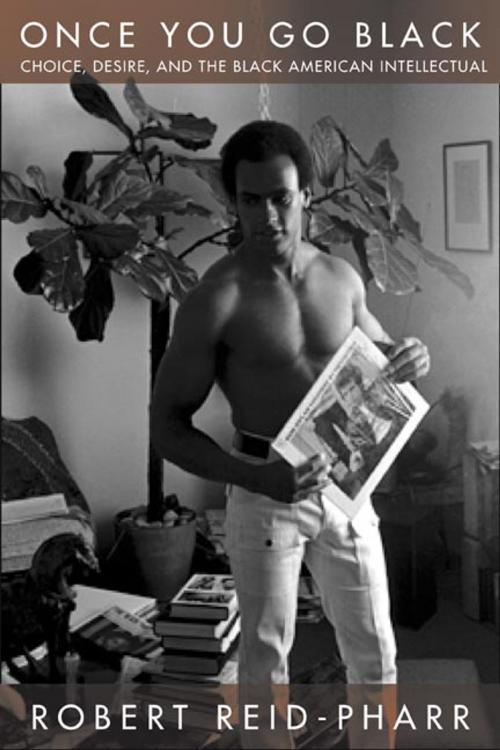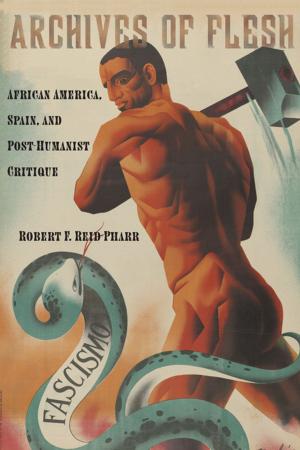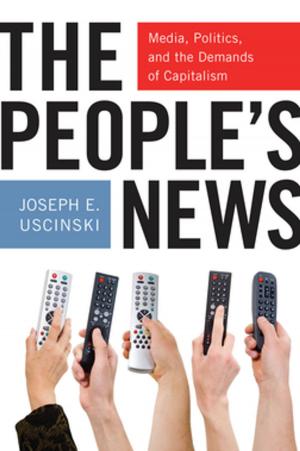Once You Go Black
Choice, Desire, and the Black American Intellectual
Nonfiction, Social & Cultural Studies, Social Science, Cultural Studies, African-American Studies, Gender Studies| Author: | Robert F. Reid-Pharr | ISBN: | 9780814776483 |
| Publisher: | NYU Press | Publication: | July 1, 2007 |
| Imprint: | NYU Press | Language: | English |
| Author: | Robert F. Reid-Pharr |
| ISBN: | 9780814776483 |
| Publisher: | NYU Press |
| Publication: | July 1, 2007 |
| Imprint: | NYU Press |
| Language: | English |
2007 Lambda Literary Award Finalist, LGBT Studies
Richard Wright. Ralph Ellison. James Baldwin. Literary and cultural critic Robert Reid-Pharr asserts that these and other post-World War II intellectuals announced the very themes of race, gender, and sexuality with which so many contemporary critics are now engaged. While at its most elemental Once You Go Black is an homage to these thinkers, it is at the same time a reconsideration of black Americans as agents, and not simply products, of history. Reid-Pharr contends that our current notions of black American identity are not inevitable, nor have they simply been forced onto the black community. Instead, he argues, black American intellectuals have actively chosen the identity schemes that seem to us so natural today.
Turning first to the late and relatively obscure novels of Wright, Ellison, and Baldwin, Reid-Pharr suggests that each of these authors rejects the idea of the black as innocent. Instead they insisted upon the responsibility of all citizens—even the most oppressed—within modern society. Reid-Pharr then examines a number of responses to this presumed erosion of black innocence, paying particular attention to articulations of black masculinity by Huey Newton, one of the two founders of the Black Panther Party, and Melvin Van Peebles, director of the classic film Sweet Sweetback’s Baadasssss Song.
Shuttling between queer theory, intellectual history, literary close readings, and autobiography, Once You Go Black is an impassioned, eloquent, and elegant call to bring the language of choice into the study of black American literature and culture. At the same time, it represents a hard-headed rejection of the presumed inevitability of what Reid-Pharr names racial desire in the production of either culture or cultural studies.
2007 Lambda Literary Award Finalist, LGBT Studies
Richard Wright. Ralph Ellison. James Baldwin. Literary and cultural critic Robert Reid-Pharr asserts that these and other post-World War II intellectuals announced the very themes of race, gender, and sexuality with which so many contemporary critics are now engaged. While at its most elemental Once You Go Black is an homage to these thinkers, it is at the same time a reconsideration of black Americans as agents, and not simply products, of history. Reid-Pharr contends that our current notions of black American identity are not inevitable, nor have they simply been forced onto the black community. Instead, he argues, black American intellectuals have actively chosen the identity schemes that seem to us so natural today.
Turning first to the late and relatively obscure novels of Wright, Ellison, and Baldwin, Reid-Pharr suggests that each of these authors rejects the idea of the black as innocent. Instead they insisted upon the responsibility of all citizens—even the most oppressed—within modern society. Reid-Pharr then examines a number of responses to this presumed erosion of black innocence, paying particular attention to articulations of black masculinity by Huey Newton, one of the two founders of the Black Panther Party, and Melvin Van Peebles, director of the classic film Sweet Sweetback’s Baadasssss Song.
Shuttling between queer theory, intellectual history, literary close readings, and autobiography, Once You Go Black is an impassioned, eloquent, and elegant call to bring the language of choice into the study of black American literature and culture. At the same time, it represents a hard-headed rejection of the presumed inevitability of what Reid-Pharr names racial desire in the production of either culture or cultural studies.















